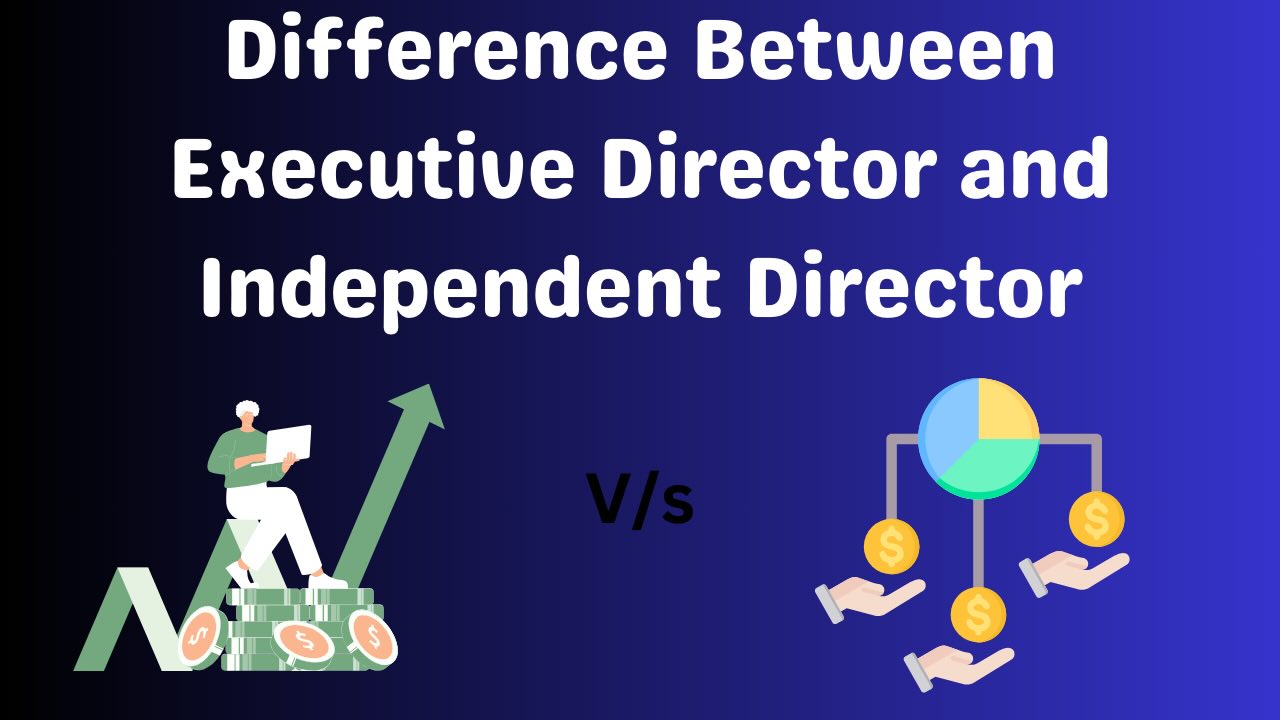Difference Between Executive Director and Independent Director: The company is an artificial person and is managed by human beings. The human who runs it is known as the Board of Directors. Directors acting collectively are known as the Board. The directors play a very important role in the day-to-day functioning of the company. It is the board, that is responsible for the company’s overall performance.
To attain the objectives prescribed in the Memorandum of Association of the company, the company depends on Board of Directors (collectively) and directors (individually). Directors of a Company are its eyes, ears, brain, hands and other essential limbs.
Quick Links
Independent Director
The Cadbury Committee in 1992, which itself was set up following the corporate scandals involving BCCI, Poly Peck and Maxwell, provided respectability to the concept of independent directors, by focusing on independent directors as a part of the new practices for better governance. Independent directors function as an oversight body in monitoring the performance and should raise red flags whenever suspicion occurs. They are expected to be more aware and question the company on relevant issues in their position as trustees of stakeholders.
The institution of independent directors is a critical instrument for ensuring good corporate governance and it is necessary that the functioning of the institution is critically analysed and proper safeguards are made to ensure efficacy.
Companies Act 2013 mandates the appointment of independent directors by listed companies and other classes of companies. It also prescribes other aspects such as maximum tenure of independent directors, separate meetings of independent directors, tenure, their qualifications, liability, appointment, remuneration, etc. The Central Government has exempted section 8 companies from the requirement of appointment of Independent Director.
Executive Director
An executive director holds a position on the executive board. They have “executive responsibility” for running the company’s business. They will typically be elected by employees and shareholders and might be an employee, officer or stakeholder in the company. Other directors may be representatives of, for example, an institutional investor or a union.
Difference Between Executive Director and Independent Director
| EXECUTIVE DIRECTOR | INDEPENDENT DIRECTOR |
| This is an employee of company | They cannot become chairman of various committees of the board |
| ESOPs can be granted to such director | ESOPs cannot be granted to such director |
| They are liable to retire by rotation | They are not liable to retire by rotation |
| They are appointed for one year and can be reappointed | They can be appointed for 5 years at a time and can serve 2 consecutive terms. |
| Listed: 1/3rd of total directors must be independent directors Unlisted: at least 2 directors should be independent directors | Chairman of committees of board has to be independent director |
| They can have monetary relationship with the company | They cannot have any monetary relationship with the company |
| No Need to hold a separate meeting of executive directors only | At least one meeting must be held of Independent directors only |
| No minimum number of executive directors required to be appointed | Listed: 1/3rd of total director must be independent directors Unlisted: at least 2 directors should be independent directors |
| Every Company is required to appoint executive directors | Only companies fulfilling certain parameters are required to appoint independent directors |
Other Relevant Articles

